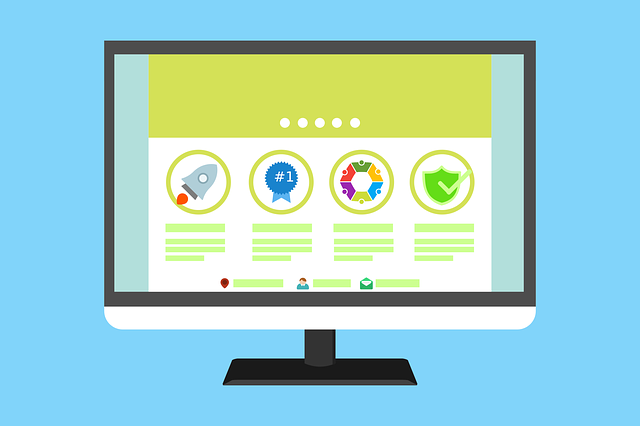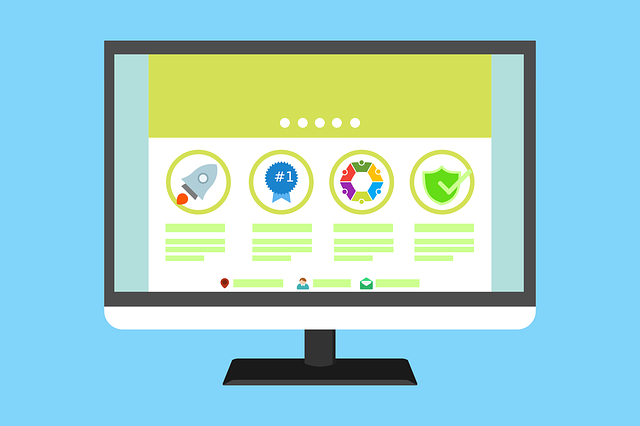Chatbots for e-commerce websites have become indispensable tools, revolutionizing digital interactions. Using natural language processing (NLP) and machine learning, these AI programs mimic human conversations, offering instant support for customers. On e-commerce sites, they provide product recommendations, answer FAQs, guide checkout processes, and enhance overall user experience. Scripted chatbots, tailored for e-commerce, offer quick, consistent responses to common queries, boosting sales conversions during peak seasons. Integrating these chatbots with CRM systems enables personalized interactions while machine learning algorithms improve response quality over time. Future trends include advanced natural language understanding, AI-driven product recommendations, and voice interaction via virtual assistants, aiming to optimize chatbot functionality in e-commerce operations.
“Discover the transformative power of scripted chatbots in the ecommerce space. This comprehensive guide unravels the fundamentals, offering insights into how these intelligent assistants are reshaping online retail. We explore the unique capabilities of scripted chatbot development, highlighting their advantages and distinct features compared to standard bots.
Learn about seamless chatbot implementation on your website, strategies for optimal performance, and future trends shaping this dynamic field. Elevate your ecommerce experience with these essential tips and unlock the potential of artificial intelligence in driving sales.”
- Understanding Chatbots: The Basics and Their Functionality
- Scripted Chatbots: How They Differ and Their Advantages for Ecommerce
- Implementing a Scripted Chatbot on Your Ecommerce Website
- Best Practices and Future Trends in Chatbot Development for Ecommerce
Understanding Chatbots: The Basics and Their Functionality

Chatbots have become an integral part of modern digital interaction, especially with the rise of e-commerce websites. A chatbot is a computer program designed to simulate human conversation through text or voice interactions. These intelligent agents use natural language processing (NLP) and machine learning algorithms to understand and respond to user queries in real time.
The functionality of chatbots varies widely, but their core purpose is to enhance customer service and engagement. On an ecommerce website, for instance, a chatbot can assist customers with product recommendations, answer frequently asked questions, provide order status updates, and even facilitate the checkout process. By offering instant support and personalized interactions, chatbots improve user experience, increase customer satisfaction, and ultimately drive sales conversion.
Scripted Chatbots: How They Differ and Their Advantages for Ecommerce

Scripted chatbots are a type of artificial intelligence designed specifically for conversational interactions on websites, particularly on ecommerce platforms. Unlike their more advanced, unscripted counterparts, scripted chatbots follow pre-programmed paths of conversation, responding to user inputs with predetermined answers. This method offers several advantages in the context of ecommerce.
For one, it enhances customer service by providing quick and consistent responses to common queries. Shoppers can receive instant information about product availability, pricing, or basic features without waiting for a live agent. Moreover, scripted chatbots can guide users through the purchasing process, offering product recommendations and handling simple transactions, thereby increasing sales conversions. Their reliance on pre-defined scripts also makes them scalable, as businesses can easily deploy multiple instances to handle high customer volumes during peak shopping seasons.
Implementing a Scripted Chatbot on Your Ecommerce Website

Implementing a Scripted Chatbot on Your Ecommerce Website
In today’s digital era, integrating a chatbot for your ecommerce website has become an indispensable strategy to enhance customer experience and drive sales. A scripted chatbot is designed to interact with visitors in real-time, providing instant support, answering queries, and guiding them through the purchasing process. By leveraging AI-powered technology, these chatbots can understand and respond to a wide range of customer inquiries, from product recommendations to order tracking and return policies.
This integration offers numerous benefits. First, it improves customer satisfaction by offering immediate assistance 24/7, which can significantly reduce wait times and boost conversion rates. Second, it allows human agents to focus on more complex issues, thereby increasing efficiency. Moreover, scripting these chatbots enables them to learn from each interaction, continuously improving their responses and providing a more personalized experience for your customers.
Best Practices and Future Trends in Chatbot Development for Ecommerce

When developing chatbots for ecommerce websites, best practices include ensuring natural and conversational language processing to enhance user experience. Integration with existing customer relationship management (CRM) systems is crucial for personalized interactions and effective lead nurturing. Additionally, leveraging machine learning algorithms allows chatbots to learn from user interactions, improving their responses over time.
Looking ahead, future trends in chatbot development for ecommerce point towards more sophisticated natural language understanding, enabling seamless human-chatbot collaborations. The integration of artificial intelligence (AI) will further enhance chatbot capabilities, allowing them to provide product recommendations based on customer behavior and preferences. Additionally, voice interaction via virtual assistants is expected to gain traction, opening new avenues for engaging customers in a hands-free shopping experience.
Scripted chatbots are transforming the way businesses interact with their customers, especially in the vibrant and competitive world of e-commerce. By leveraging these intelligent agents, retailers can enhance customer experience, drive sales, and improve operational efficiency. Implementing a scripted chatbot on your e-commerce website is a strategic move that offers numerous advantages, from 24/7 availability to personalized interactions. As we navigate the evolving landscape of chatbot development, adhering to best practices and embracing emerging trends will ensure these digital assistants continue to deliver significant value, solidifying their role as indispensable tools for online retailers.
